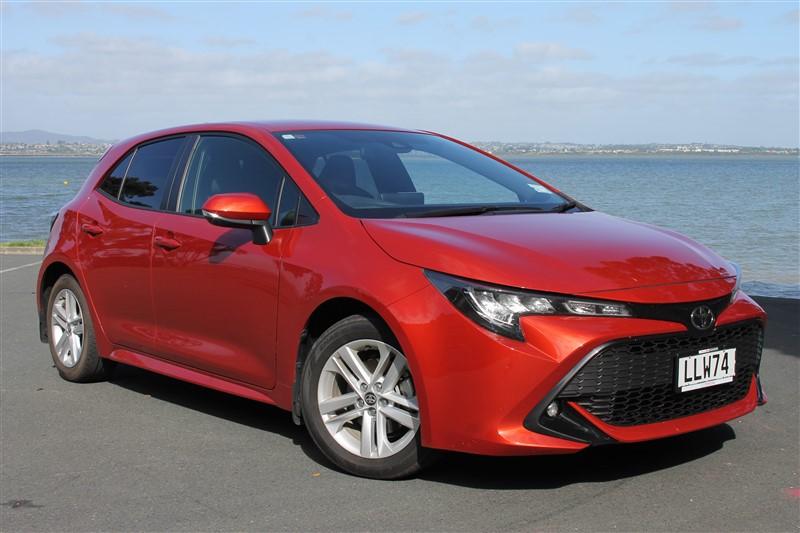So many vehicles, so many brands, so many choices
Here it is – quite possibly the most comprehensive, annually updated vehicle buyer’s guide on the market, designed to help you, the fleet manager, make an informed decision on what vehicles should be added to your fleet.
The Fleet Buyer’s Guide is traditionally a compilation of the vehicles available to buy right now. In years past, you could have taken a copy to a dealership or leasing company, pointed to a vehicle and said: “I’ll take that one please, in blue, white and green,” and chances are, you could have had your vehicles delivered in perhaps a week or three.
Today, it’s a different situation entirely, and delivery weeks could conceivably – and in some case have – become delivery months.
We all know the reason – it’s the C word which has had such a world changing effect from which none of us has proven immune.
What is fascinating today in 2021, are the success stories we have been hearing from many of the importer/distributors.
In fact, it is almost right across the board where tales of massive sales figures have been reported, eclipsing those of years gone.
All those distributors have shown shock and surprise too, proving that doomsaying crystal balls – like headlights – are obviously prone to UV damage!
In fact, it is the success of those importers which has seen a few changes made to the Fleet Buyer’s Guide for 2021.
Along with our intentional revamp for ease of reading and comparison, we have seen some interesting trends coming to light through our research and compiling of this year’s guide.
We have seen the rise of the Small SUV market continue with more verve and enthusiasm than ever before and the number of large SUVs has also grown.
We have also seen Small cars make a significant increase as well as a ‘blurring of the lines’ when it comes to the Motor Industry Association reporting on vehicles which we have had to do a double take on: why is THAT vehicle in THIS category, and so forth.
Those industry figures are supplied by the manufacturers, who identify the market segments their vehicle fits into and the parameters determining those segments are – hmm – sometimes more creative than others.
From an industry commentating point of view, where NZ Company Vehicle is asked specifically to recommend a vehicle and “we’re looking at a 2-litre vehicle’’ is the guideline, our typical response is “why?” And the answer is surprising.
There is a misconception that the 2-litre engine is standard for a fleet vehicle when in fact, a closer standard would be a much smaller displacement engine but which the physical size of the vehicle suggests should be much larger.
The implementation of 999cc or 1.5-litre engines is far more commonplace than most would think, and many informed fleet managers are surprised to learn that the 2.5-litre fuel injected vehicle they assumed was part of their feet, is in fact a direct injected/port injected engine with or without a turbocharger engine of half or less than half the displacement.
This is just one of the reasons we believe the annual Fleet Buyer’s Guide is such a valuable resource.
In saying this, for 2020/21 – more so than in any other year – we have had to be extremely surgical when it comes to our pricing ceiling.
Previous editions have seen vehicles priced up to $85,000 as a general figure which we felt kept the selection to within the parameters of a what a small to medium enterprise would realistically be looking at.
There has been some editor’s discretion on this in the past, which has allowed us to accommodate as many appropriate vehicles as possible; but it has limited the number of vehicles, which some might have anticipated.
This year, due to the sheer volume of vehicles coming into the country in a year of “auto industry Depression” we have had to be even tighter in our selection of vehicles, and while one or two may have slipped through, the bulk of vehicles are tidily under the $85k figure.
There is also a reduced number of alternatively powered vehicles listed from years gone by.
We have focused on the electric and plug-in vehicles for the 2021 guide, as a result of their ever-growing numbers, which – had we listed them all – would have made a sizeable impact on the rest of the magazine.
What we can say is Audi, BMW, Ford, Hyundai, Kia, Lexus, Mercedes-Benz, MINI, Mitsubishi, Subaru, Suzuki and Toyota (especially), all have hybrid vehicles within their stable and those brands not mentioned, are sure as eggs working on getting them.
This means is the probability of a hybrid vehicle buyer’s guide edition later on.
There is one final omission to mention from this year’s guide, and that is Holden. The publisher felt a final acknowledgement for this iconic fleet brand and its contribution to the national car parc was warranted, so Vale Holden.
As editor, it would be remiss to point out that: while all efforts have ben made to ensure accuracy, no responsibility will be taken by the publisher for inaccurate information or for consequences of reliance on this information.






